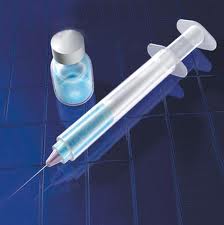 Tired of hearing “there is no scientific proof” for homeopathy? I know I am! Despite this seemingly never-ending chorus of misinformation, more and more studies continue to pour in that prove homeopathy works. Most of them are being conducted in India and Europe, where homeopathy is much more accepted.
Tired of hearing “there is no scientific proof” for homeopathy? I know I am! Despite this seemingly never-ending chorus of misinformation, more and more studies continue to pour in that prove homeopathy works. Most of them are being conducted in India and Europe, where homeopathy is much more accepted.
Studies that should be especially convincing to our skeptical friends are those conducted on lab animals and even in-vitro tissue samples. Some studies have also been conducted on plants! Can skeptics seriously believe that cancer cells, lab rats, and plants are subject to the placebo effect?
One particularly excellent source of information about homeopathic studies is the ever-growing database being accumulated by Saurav Arora on Audesapere.in. By the way, “Aude Sapere” is the opening epigraph of the Organon, Hahnemann’s treatise on the homeopathic system, still the seminal work on homeopathy to this day. “Aude Sapere” means “Dare To Know” — as true a challenge to today’s skeptics of homeopathy as it was back to Hahnemann’s medical colleagues in the early 1800’s!
Saurav Arora’s Database of Scientific Publications in Homeopathy includes subcategories like:
* Fundamental Research (lab studies of various kinds)
* Clinical Research
* Veterinary
* Agro
* Survey studies
and more. Each of the cited papers is accompanied by a link to the paper itself.
Here are just two recent examples I picked out at random from the Fundamental Research category on the site:
▪ Antimalarial potential of China 30 and Chelidonium 30 in combination therapy against lethal rodent malaria parasite: Plasmodium berghei. This study published in the May 2013 issue of the Journal of Complementary Integrative Medicine demonstrated that the use of a combination of two remedies was just as effective as standard therapy against malaria on lab mice, with even greater prophylactic abilities against malaria than the standard allopathic drug therapy!
*Calcarea carbonica induces apoptosis in cancer cells in p53-dependent manner via an immuno-modulatory circuit. In this study, published in the September 2013 issue of BMC Complementary and Alternative Medicine, the remedy Calcarea Carbonica was used in a trial on a particular strain of cancer cells, both in live mice and on the cells themselves. Interestingly, the remedy was effective against cancer in the mice, but not so on the cells themselves, prompting the researchers to investigate whether the remedy was, instead, triggering an immune response in the mice that then killed their cancer. This conclusion was then borne out by the researchers and an immune-response mechanism was even determined.
Imagine the significance of these two studies if they were taken more seriously. Effective non-toxic therapies against malaria and cancer! Just the fact that an agent had been found that triggered an immune-based response toward fighting cancer should be headlines. Please check out and support the AudeSapere research database and spread the word about it!
Another great and readable source of research information is the series of homeopathic research articles being contributed by Australian naturopath and homeopath Robert Medhurst to the excellent online homeopathic journal, The Hpathy Newsletter. Check out Medhurst’s 13th installment in his series of homeopathic research summaries.
By the way, to check out all of Hpathy’s past research articles, use this link. On that page you can find all of Medhurst’s research survey articles and more.
I could go on and on.
Suffice it to say, the scientific proof that homeopathy is safe and highly effective grows each day. The skeptics need only open their eyes and look. Aude Sapere!




nice article here about homeopath!
I really enjoyed visiting. hope you like! 🙂
http://www.pharmalisboa.pt/conselhos/homeopatia/